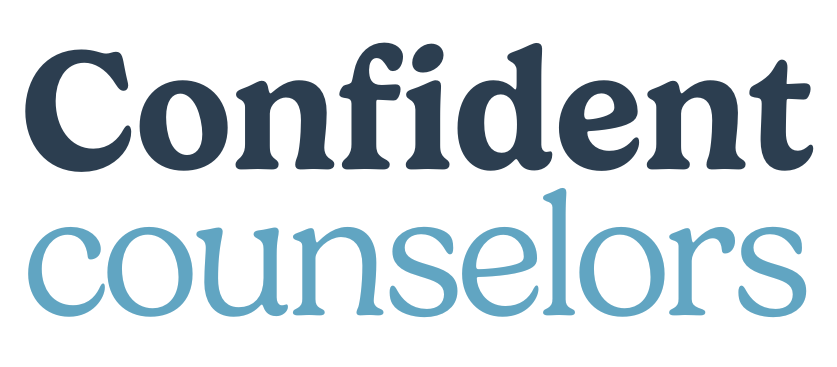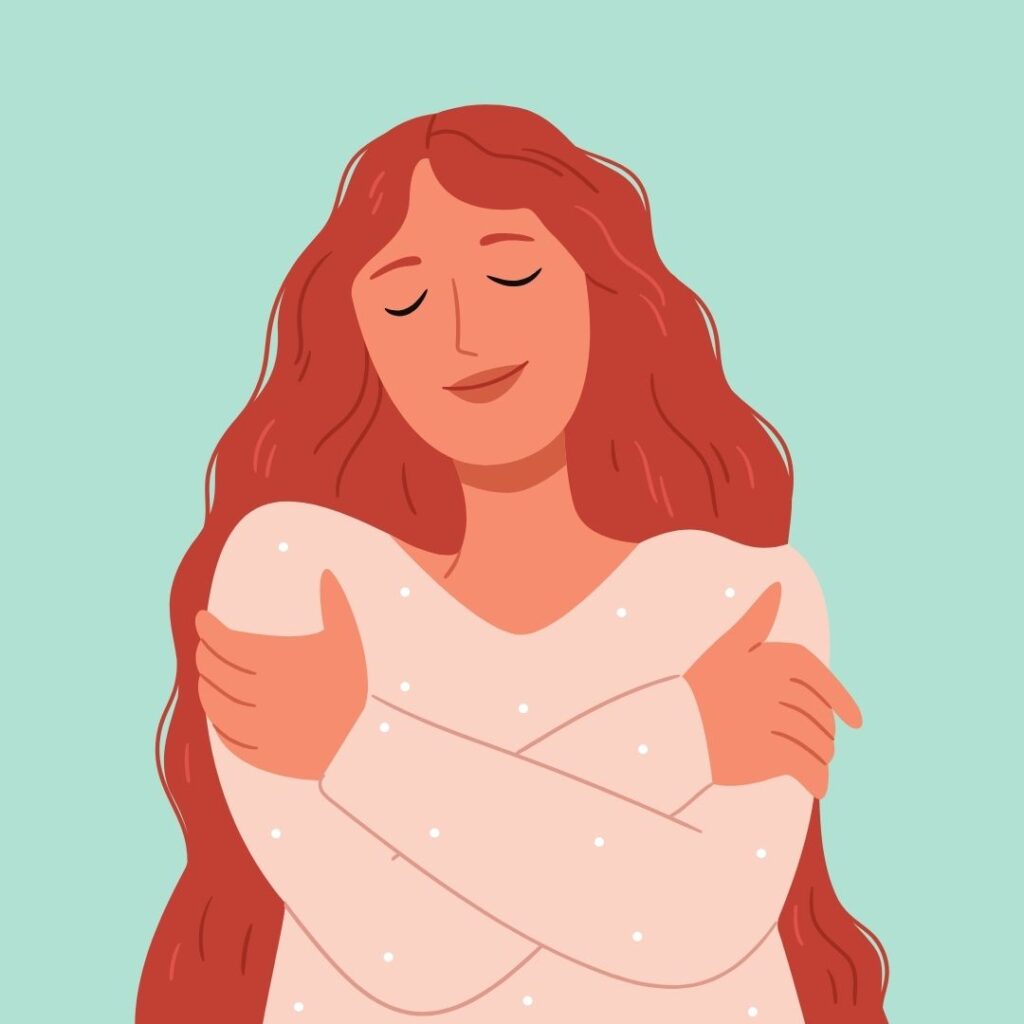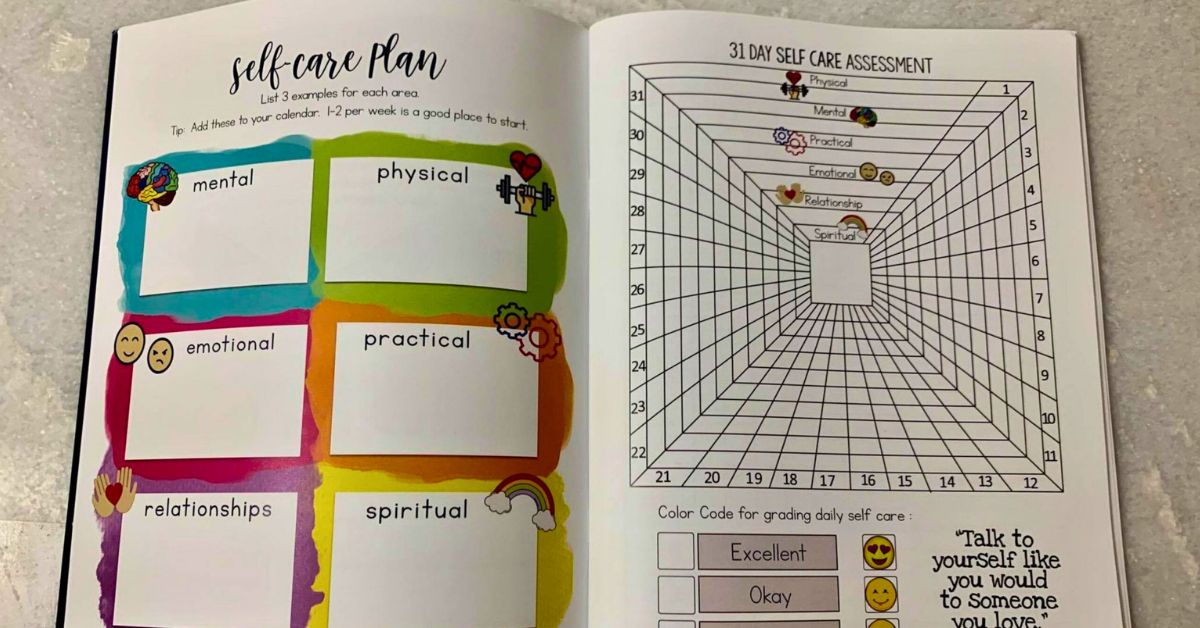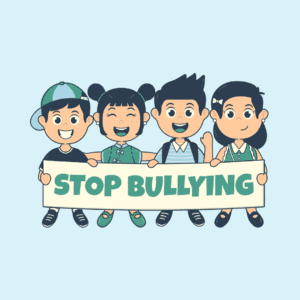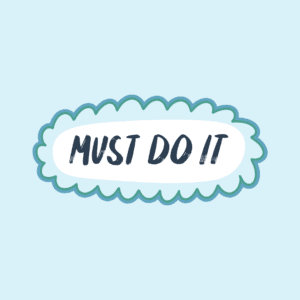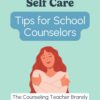Self care for school counselors is an important aspect of your routine as a helping professional. Holding yourself accountable is key to building the resiliency you need to care for others. Unfortunately, caring for yourself is often placed on the back burner because you might feel like there’s insufficient time or energy for self-care.
You may even feel selfish for taking the time to focus on yourself. But what if you looked at it from a different perspective?
Think of it like this: if you’re in your best mental and physical shape, you can show up for your students and school staff when they need you the most.
In other words, the quality of care you provide will be much better if you feel good. When you put it that way, self-care is non-negotiable. Yay for you!
But it’s easier said than done, right?
Self-care involves much more than just a day at the spa. Six facets of self-care need your attention. Implementing self-care activities from each facet will help you produce a holistic self-care regime. Once you've mastered these, you can educate staff with these tips!
Don’t worry, these tips are easy to implement in everyday life!
Mental Health Self Care for School Counselors
When discussing mental self-care, we’re talking about activities that stimulate your mind and encourage cognitive growth (two things that keep your mind in tip-top shape).
All this leads to better brain function and problem-solving skills—which we all know is essential when managing a classroom or helping a student 1:1.
To keep your mind firing on all cylinders, you only need a few moments to spend on yourself doing something mentally stimulating.
Mental Health Self Care Ideas
- Keep a personal journal (on your computer or with one of these handy journals).
- Read a book or magazine simply for pleasure. You don’t have to learn a new professional skill, but you can if you’d like!
- Be mindful of your thoughts, note the negative ones, and then release them.
- Play old-school board games again. Pick the ones that challenge your thinking and problem-solving.
Physical Self Care For School Counselors
Not surprisingly, physical self-care includes activities that promote a healthy lifestyle, such as exercising, eating right, and regularly visiting the doctor for checkups.
These activities are no-brainers, but the following additional ways to take care of your physical self often go overlooked:
- Taking breaks.
- Sleeping when you need it. Yes, nap if you’re tired. (You have my permission).
- Put routine wellness checks on your calendar and stick to them.
- Combining something you like to do with a physical activity you don't usually enjoy. Examples: bird watching while jogging or making new dance moves to your favorite songs.
As it turns out, we can’t practice compassion with other people if we can’t treat ourselves kindly. - Brené Brown
Emotional Self Care for School Counselors
While this facet of self-care may coincide with mental self-care, it focuses specifically on emotions. It involves allowing them to exist without judging yourself for how you feel.
When you allow yourself to feel emotions as they surface, you will not only feel relieved instead of a pressure cooker of emotions but also prevent your emotions from interfering with your day-to-day responsibilities.
emotional self-care Ideas
- When you feel sad, allow yourself to cry. Loudly, if necessary, no shame in the ugly cry.
- If you’re angry, exercise to release the negativity or invest in a legit punching bag.
- Prevent overwhelm by saying no when you’re too busy.
- Meditate and become more mindful of your thoughts and emotions.
Practical Self-Care for School Counselors
Keeping your life in check is an easy way to reduce stress and enhance feelings of accomplishment, especially if you’re overwhelmed by disorganization.
Keeping a clean house, maintaining records, and checking things off your to-do list are all ways to clear clutter from your life and get ahead of all those seemingly little things that cause disorder.
practical self-care Ideas
- Organize to be more efficient in day-to-day life.
- Use a calendar to remind yourself of important dates. It'll let your brain relax.
- Keep your workspace and home clutter-free.
- Pay your bills beforehand to prevent panic and feel accomplished.
- Collaborate with other professionals to relieve some of your workload.
- Hold yourself accountable for self-care with this free habit tracker.
Relationship Self Care for School Counselors
When we think of relationship self-care, we often think about what we are, or aren’t, doing for others close to us. But the truth is, when you foster healthy relationships with loved ones, you’re also gifting yourself a strong support system to reach out to when needed.
relationship self-care Ideas
- Being social in the teachers' lounge or attending school events for FUN.
- Be intentional about fostering your friendships. Be the friend you would like to have.
- Set boundaries with coworkers and family to protect your time and privacy.
- Be helpful to others. Seek out ways to help.
Spiritual Self Care for School Counselors
It’s natural for humans to experience hopelessness and dread, which is why spiritual self-care is important in one's routine. Connecting with nature and meditating can promote self-reflection, help one feel more connected and grounded, and provide emotional clarity.
Spiritual Self Care Examples
- Believe in a set of moral standards.
- Spend time in nature.
- Meditate regularly.
- Pray if you’re religious.
- Keep a daily gratitude or self-care journal.
If you can implement these six facets of self-care into your daily routine, they’ll become habitual. And even though it may feel like you’re spending a lot of time on yourself at first, you’re freeing up your mind and energy to be your best self for yourself, your loved ones, and your students.
What do you do for Self Care?
Share your tips below for making self-care part of your routine!
